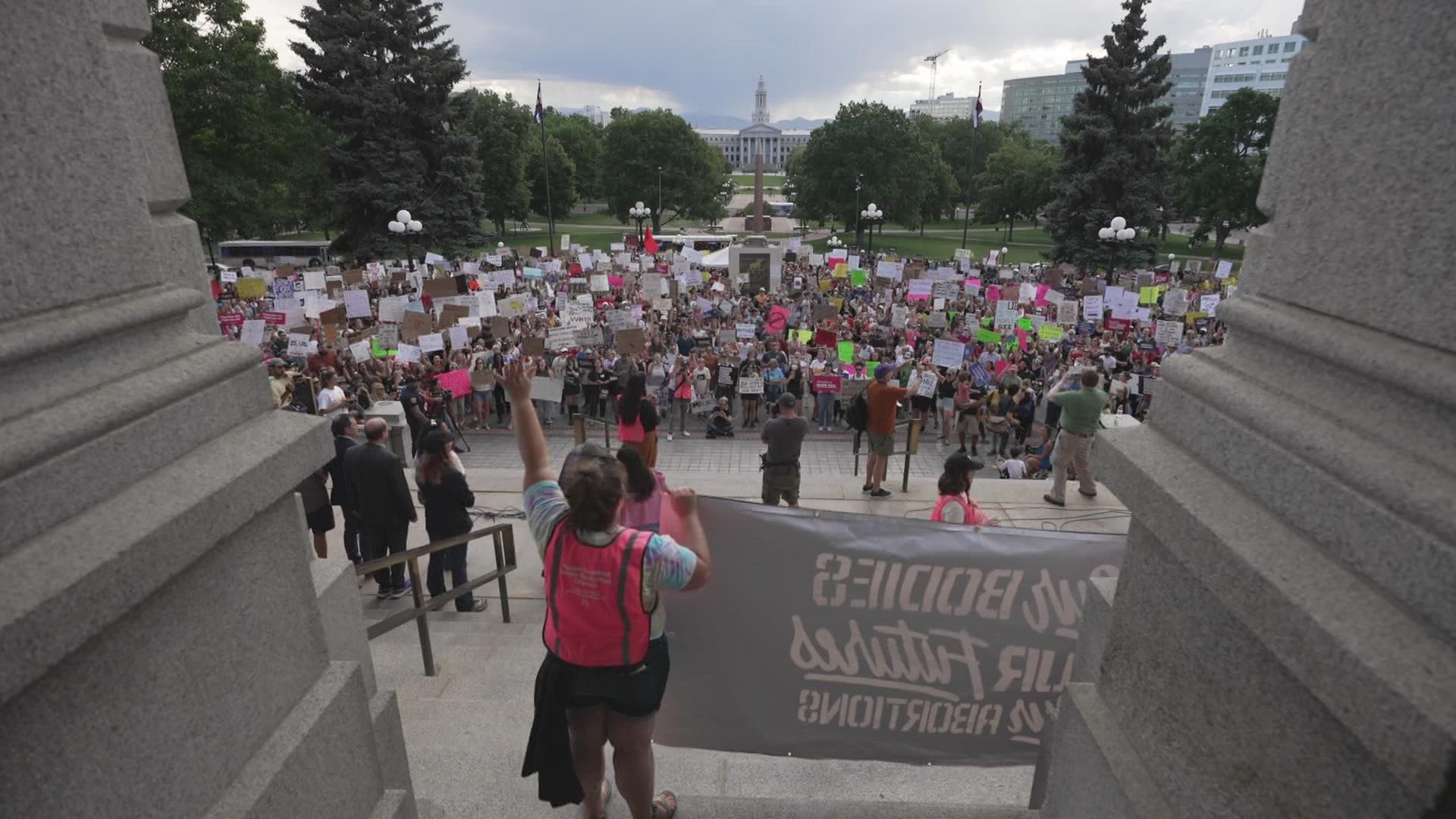DENVER — Colorado passed the Reproductive Health Equity Act to ensure abortion access would stay in Colorado once Roe v. Wade was overturned, but that access doesn't mean barriers don't exist.
Kiki Council knows the barriers in Colorado well. She's a staff attorney at The Forefront Project, where she represents reproductive rights, health and justice organizations. She also represents some of the youngest pregnant people in Colorado.
Council represents minors who are trying to get a judge's approval to bypass the state law that requires them to tell their parents they plan to get an abortion.
“It’s a large order, tall order to ask anybody to go under oath and to explain to a total stranger their sex life," Council said. "And that’s what we’re asking 14-year-olds to do."
The Colorado law passed in 2003 doesn't require parental consent, just notification from the minor to the parents 48 hours before they have an abortion.
"Parental involvement laws tend to be fairly well supported even among people that support abortion rights," said Dr. Kate Coleman-Minahan, an assistant professor at the University of Colorado College of Nursing.
But Coleman-Minahan said these parental involvement laws that exist in 37 states don't work the way people think they do, and she's done studies that show that.
"And when a young person says they cannot involve their parent, they fear they may get kicked out of the house, they fear emotional or physical abuse, and my research shows that these fears are founded," she said. "When there’s been forced disclosure, parents react the way that their young people, their children expect them to."
Coleman-Minahan said most young people voluntarily involve their parents without a mandate in place, and adding a requirement only adds a barrier for the minors who don't have a trusted parent or guardian in their life.
The other barrier both Council and Coleman-Minahan disagree with is the ban on state public funding for abortions that Colorado has had in place since voters passed the initiative in 1984.
"This disproportionately impacts people of low income who are reliant on Medicaid, because abortion care is hundreds of dollars," Coleman-Minahan said.
Private insurers in Colorado can decide to cover abortions, but are not required to.
The organization Cobalt started an abortion fund when the 1984 ban passed, and has been helping to pay for abortions ever since. They've seen out-of-state requests for funding increase since Texas passed Senate Bill 8, and expect the requests to continue to rise.
"We’ve never turned anyone away," said Laura Chapin, Cobalt's communications consultant. "We don’t intend to now. We are doing everything we can to work with providers to ensure everyone who comes here and asks for help is able to get it.”
Cobalt and other organizations also hope to repeal the public funding ban and enshrine the Reproductive Health Equity Act in the state's constitution.
If the parental notification law were to be changed, the legislature would have to do it, and lawmakers have not put that on the table.
SUGGESTED VIDEOS: Roe v. Wade decision

